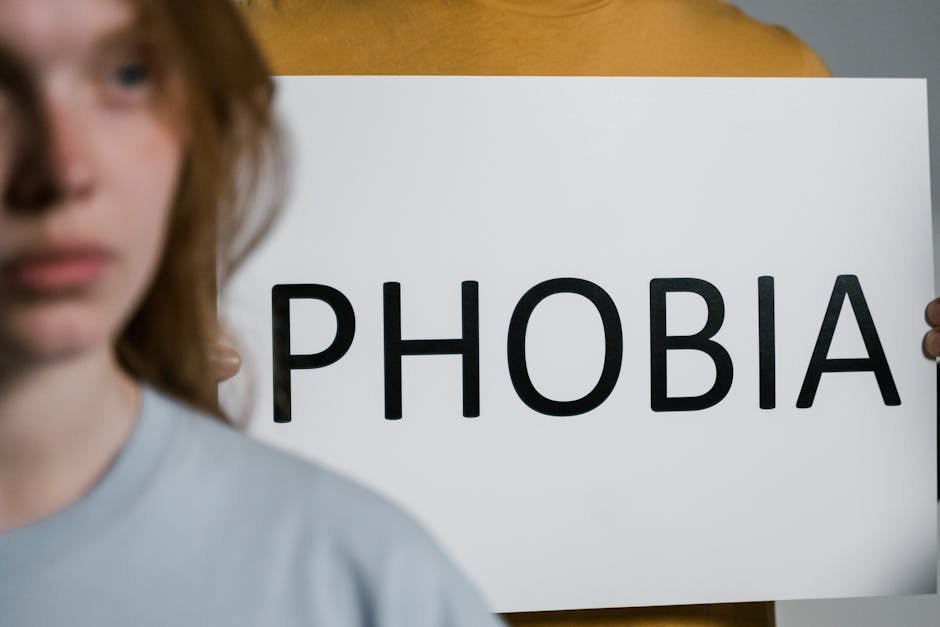Daydreams arrive uninvited – a coworker’s smile lingers, a stranger on the train sparks curiosity, an old crush resurfaces – and suddenly your focus drifts into a cheating fantasy . If this sounds familiar, you’re not broken or uniquely disloyal. Imagination is a messy, vivid part of being human, and it often wanders into forbidden territory. The real challenge is telling the difference between a private storyline that helps you understand yourself and a pattern that hints at needs going unmet. This guide unpacks what a cheating fantasy can mean, when it’s harmless, when it’s a warning, and how to respond with honesty rather than panic.
Is it normal to picture intimacy with someone else?
Short answer – yes. Many people occasionally notice their mind sketching a scene with someone who isn’t their partner. A fleeting cheating fantasy can be nothing more than the brain playing with novelty, risk, or curiosity. It doesn’t automatically translate into desire to betray, nor does it prove there’s something flawed about your bond. What matters is frequency, intensity, and context. If the daydreams are sporadic and you can shrug them off, they’re likely just mental static. If you’re looping the same scenario over and over – or craving emotional intimacy with a specific someone – the cheating fantasy may be pointing at a deeper question worth exploring.
Why your mind might be going there
You’re not wrong to ask where a persistent cheating fantasy comes from. The imagination follows trails that feelings leave behind – fear, boredom, longing, frustration – and it often dramatizes them into storylines. Consider the possibilities below and note which ones resonate. You can reorder, combine, or disregard them as needed – they’re prompts, not verdicts.

-
You’re uneasy with commitment
Even people who adore their partner can feel their chest tighten at the permanence of promises. If you’ve historically dodged labels or postponed milestones, a cheating fantasy might be your mind’s way of flirting with escape. Ask whether you want a committed relationship at this stage of your life. If the answer is yes, name your fears out loud and discuss them – commitment anxiety shrinks when it’s spoken rather than hidden.
-
Your emotions are running hot
Early-stage infatuation is a sensory overload – sleep changes, appetite shifts, attention scatters. In that turbulence, the brain can misfire into novelty-seeking daydreams. A cheating fantasy during the honeymoon phase doesn’t automatically signal dissatisfaction; it can be a side effect of intensity. Treat it like weather – notice it, let it pass, and keep building trust and routines that settle the nervous system.
-
Things moved faster than your clarity
When a relationship accelerates – shared keys, merged schedules, constant togetherness – insight sometimes lags behind speed. If you didn’t pause to ask, “What do I want?” your imagination may now do the asking for you. In that gap, a cheating fantasy can pop up as a pressure valve. Slow the tempo, make room for reflection, and decide whether the relationship needs recalibration rather than secrecy.

-
Monogamy might not fit you right now
People’s relationship styles evolve. If you’re genuinely curious about open structures or you keep wondering how exclusivity aligns with your values, a recurring cheating fantasy may be a prompt to examine your philosophy – not a command to act behind anyone’s back. If this is stirring, talk about it respectfully. Exploration requires consent; otherwise, it’s not exploration, it’s harm.
-
Your sexual needs aren’t being met
Desire isn’t static – turn-ons shift, body rhythms change, stress intrudes. If the daydreams are mostly physical – specific acts, settings, or dynamics – the cheating fantasy might be a mirror for sexual frustration. Naming the unsatisfying parts is not an attack; it’s a roadmap. Share what you miss, what you crave, and what would help you feel alive again. Collaboration beats quiet resentment.
-
Unresolved hurt is talking through fantasy
Arguments that never truly ended can echo. Maybe there was a cutting comment, a forgotten promise, or a pile of small dismissals. If you’re nursing resentment, your mind may script a cheating fantasy as a rebellious counterweight – a way to claim power without confrontation. Instead of acting out in imagination, name the wound and ask for repair. Repair is a conversation, not a secret performance.

-
You’re not satisfied with the relationship overall
Sometimes the truth is simple and heavy: you’ve grown apart, and convenience is doing the heavy lifting. When affection feels thin and connection feels like a chore, a cheating fantasy can appear as a lighthouse for unmet aliveness. Before you conclude it’s over, check whether this is a temporary slump or a pattern. If it’s a pattern, honesty – with yourself and your partner – is kinder than staying in name only.
-
You want a wider range of experience
First relationships – or long stretches of exclusivity – can make novelty seem mythical. You might be curious about threesomes, role dynamics, or edgy scenarios you’ve never voiced. If your cheating fantasy features experimentation more than betrayal, consider whether some of that energy could be explored consensually with your partner. Asking isn’t a promise; it’s an invitation to understand each other better.
-
You’ve been bottling up your desires
Silence multiplies pressure. When fantasies are treated like shameful contraband, they often grow louder and more intrusive. Sharing at a level you’re comfortable with can take the voltage down. If you’re worried your cheating fantasy will be misunderstood, focus on the underlying desire – power play, novelty, exhibitionism, tenderness – rather than the exact storyline.
-
You’re human – and the mind breaks rules for sport
Humans have a knack for poking boundaries in the safest possible place – our own heads. Sometimes a cheating fantasy is nothing but a mental joyride through the “off-limits” zone. You can register the thrill and still choose integrity. The thought is not the deed; the difference is what you do next.
Ways an internal affair can actually help
Not all mental detours are destructive. When handled with curiosity and care, a cheating fantasy can serve your growth and even your relationship. Here’s how.
-
It clarifies desire
Instead of scolding yourself, study the pattern. What turns up repeatedly – dominance, vulnerability, being pursued, being watched, tender slowness, spontaneous heat? Treat your cheating fantasy like a compass rather than a confession. Themes can reveal what your body and heart miss, which helps you request it openly rather than chase it secretly.
-
It can boost pleasure
When shame loosens, arousal has room to breathe. Acknowledging that a cheating fantasy is a story – not a plan – can unlock the imagination that fuels better sex with your partner. The brain is your largest erotic organ; when it’s less busy hiding, it’s more available for sensation, play, and connection.
-
It feeds creative role-play
If your daydreams are genuinely fictional – you don’t want to pursue someone else, but you do enjoy the storyline – borrow elements for consensual play. Maybe it’s the energy of being “caught,” the suspense of a secret, or the magnetism of a bold persona. A reframed cheating fantasy can become a plot twist you share rather than a wedge that isolates you.
Sexual scenarios vs. emotional entanglements
There’s an important distinction: an erotic daydream about bodies and settings is different from imagining deep closeness with a specific person. A sexual cheating fantasy can be sensation-first – heat without attachment. An emotional version often signals a shortage of intimacy right where you live. If you keep fantasizing about being understood, prioritized, or seen by someone else, your relationship may be running a deficit in those currencies.
Instead of policing every stray thought, examine the need beneath it. Do you want more empathy? More presence after work? More affirmation, more laughter, more curiosity about your inner world? Identify the exact longing. Once you can name it, you can ask for it – and you can notice whether it’s consistently unavailable. A persistent emotional cheating fantasy is less about lust and more about attachment – a sign to repair or reconsider the bond.
Do you have to tell your partner?
You own your privacy. No one has automatic access to your inner monologue. If your cheating fantasy is strictly a kink or a mental movie that helps you charge your desire – and you don’t want to share it – you’re not obligated to. Secrecy isn’t always deceit; sometimes it’s healthy boundary.
That said, transparency can be valuable when the daydreams are symptoms rather than stories. If you suspect the cheating fantasy is rooted in unmet needs – sexual or emotional – consider sharing the need without delivering the plot. You don’t have to say, “I imagine other people.” You can say, “I’m craving more playfulness,” or “I miss enthusiastic initiation,” or “I need more affection that isn’t goal-oriented.” Describe the change that would make the fantasies fade because the need is met.
If your interests involve specific dynamics – power exchange, voyeurism, exhibitionism, or other consensual kinks – revealing them can transform your sex life from scripted to alive. Speak gently, invite questions, agree on boundaries, and check in regularly. A once-and-done reveal is rarely enough; ongoing conversation keeps both of you oriented and safe.
How to respond with integrity
You can’t always control what appears in your head – but you can design your response. Use the steps below as a practical way to move from rumination to clarity when a cheating fantasy crops up.
Pause and label
“This is a fantasy.” Naming it reduces fusion. You aren’t the thought; you’re the thinker. That gap lets you choose what aligns with your values.
Track the trigger
What preceded the cheating fantasy ? Boredom, stress, rejection, conflict, alcohol, scrolling? Triggers point toward needs – stimulation, soothing, repair – that you can meet more directly.
Extract the theme
Write a few words about the core energy: novelty, control, surrender, praise, risk, tenderness. Themes translate into requests you can bring to your partner, which is far more productive than hiding in your head.
Share at the right level
Decide what version feels safe and useful: the need, the dynamic, or the full storyline. Consent and care guide how much detail to disclose – and when.
Experiment together
Design small, consensual changes that honor the theme – a new setting, slower pace, bolder initiation, negotiated role-play. When the relationship adapts, the cheating fantasy often quiets because the underlying hunger is fed.
Reassess honestly
If nothing changes – or if you realize your values diverge – courage may look like redefining or ending the relationship rather than nursing a secret crush. Integrity isn’t punishment; it’s self-respect and respect for the other person.
When a private daydream becomes a red flag
Most fantasies are harmless. Still, some patterns deserve careful attention. Consider the following signs that a cheating fantasy is less about play and more about avoidance or risk:
You’re seeking emotional rescue from someone specific while neglecting repair at home.
You begin hiding ordinary parts of your life – messages, schedules, social media – to protect the fantasy.
The daydreams escalate after arguments, acting as revenge rather than curiosity.
You feel compelled, not curious – like you’re being pulled rather than choosing.
Your values feel out of sync with your behavior, and shame is mounting rather than motivating change.
If these resonate, slow down. Get support, name the dissonance, and make choices that match your ethics. A cheating fantasy doesn’t control you – but ignoring what it reveals can lead you into places you never intended to go.
Talking about it without causing harm
Conversation is less dangerous than silence when it’s done thoughtfully. If you decide to talk, focus on needs and experiences rather than blame. Try, “I’ve noticed my desire spikes with novelty – could we plan something different together?” instead of, “You never excite me anymore.” Stay gentle and specific. Remember, you’re inviting collaboration, not issuing a verdict. The goal is to turn a cheating fantasy into useful data that helps both of you create a better relationship.
A reframe for self-compassion
It’s tempting to treat your imagination like a courtroom – guilty or innocent. A kinder approach is to treat it like a classroom. Your cheating fantasy may be teaching you about your erotic fingerprint, your attachment needs, your tolerance for sameness, or your unhealed hurts. Study the lesson, then decide what to do with it. Curiosity expands your options; shame narrows them.
Bottom line – keep it ethical, keep it honest
Thoughts are not promises, and fantasies are not contracts. Let your cheating fantasy stay where it’s safest – in your mind – unless you and your partner choose a consensual path to explore the underlying desires together. If the fantasies emerge because something feels off, speak up before frustration calcifies into distance. If honest conversations lead nowhere, it’s braver to redefine or release the relationship than to seek nourishment in secret. A simple test can help: imagine your partner having the same vivid cheating fantasy . Would you feel stung? If the answer is yes, treat your own imagination with the same caution and care you’d want from them. You can’t always choose what appears in your head – but you can choose clarity, communication, and respect as the way you respond.